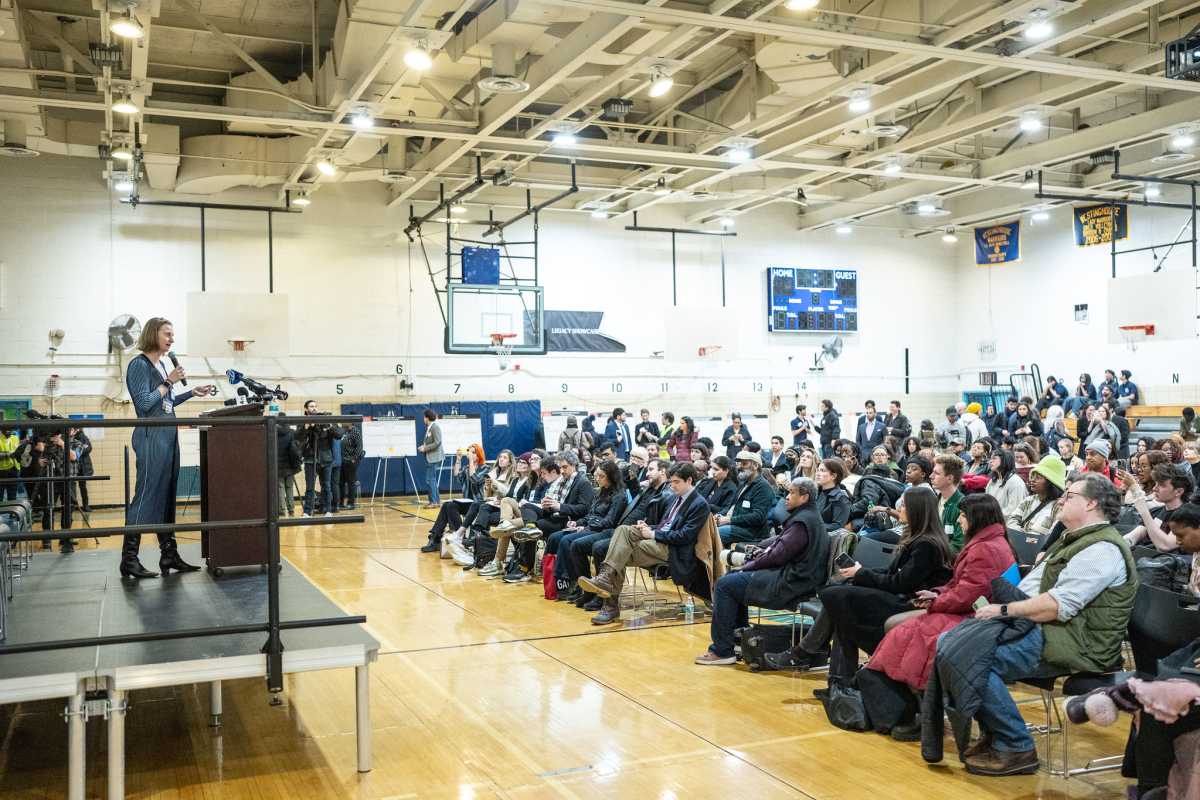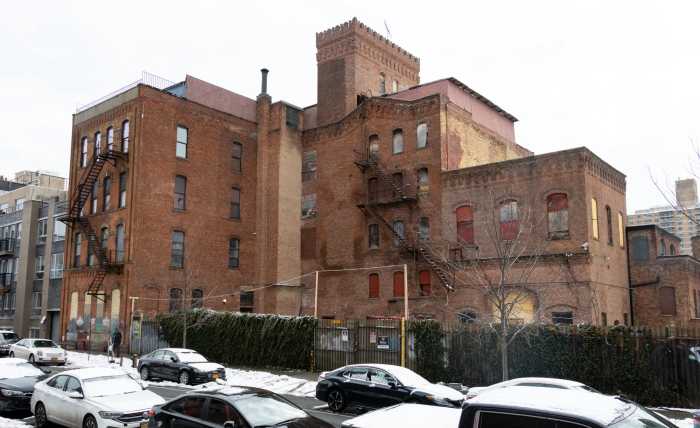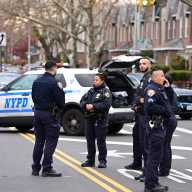Bruce Ratner and his New Jersey Nets will just have to wait.
That’s the message Metropolitan Transportation Authority Chairman
Peter Kalikow delivered at a state Assembly public hearing on plans by
the New York Jets to build a football stadium over rail yards on Manhattan’s
West Side.
Referring to the Nets basketball team owned by real estate developer Ratner
— who hopes to move the team to a new arena he’d build over
MTA rail yards at Atlantic and Flatbush avenues — Kalikow said, “The
Nets deal is absolutely on hold until this finishes.”
Kalikow’s comment at the Feb. 3 hearing was reported by the northern
New Jersey newspaper The Record.
For Ratner, the basketball arena would be the centerpiece of a six-square-block
development into Prospect Heights that would include 17 high-rise office
and residential towers. Aside from the MTA property, the Ratner plan relies
on the state’s condemnation of private property under eminent domain.
Asked to comment on Kalikow’s statement, Barry Baum, a spokesman
for Ratner’s development company, Forest City Ratner, said, “We
are not discussing ongoing conversations with the state, the city or the
MTA.”
Kalikow said his agency would first have to complete negotiations with
the Jets, who with the staunch support of Mayor Michael Bloomberg seek
to build a football stadium with a retractable roof over the MTA’s
Hudson Yards. The Jets stadium would also be a lynchpin of the mayor’s
bid for the 2012 summer Olympics.
An appraisal done for the MTA put the value of the air rights over the
Hudson Yards at almost $900 million. And while the Jets and the MTA seemed
headed for binding arbitration for the West Side site — the Jets
have offered $100 million while the MTA is seeking $300 million for a
one-third share of the air rights — Cablevision, the owner of Madison
Square Garden and the Knicks and Rangers, threw a monkey wrench into the
works last week.
An ardent opponent of the Jets plan, Cablevision offered the MTA $600
million on Friday for the West Side air rights, dwarfing the Jets’
bid. On Wednesday, Kalikow told Cablevision officials they had until Friday,
Feb. 11, to provide details of the unsolicited proposal.
Kalikow told The New York Times, however, that getting the highest price
for the transit system outweighed the mayor’s desire to bring the
Olympics to New York City.
“As important as the Olympics are, my main criteria is getting the
best deal for the MTA,” Kalikow told The Times.
Though the Cablevision bid was decried as a “publicity stunt”
by both the mayor and officials with the football team, the notion of
competitive bidding for the site gave Brooklynites who oppose Ratner’s
plan a beacon of hope.
“We’ve been demanding for the past year that the MTA should
issue requests for proposals,” said Patti Hagan, who lives near the
site of the proposed Nets arena. She said she knew of at least one idea
by a developer for the Vanderbilt Avenue end of the site.
“It’s wonderful to hear,” Hagan said.
Daniel Goldstein, lead organizer of Develop-Don’t Destroy Brooklyn,
a grassroots organization formed in opposition to Ratner’s arena
proposal, also was glad to hear about the bid.
“It says that these kind of properties need to be bid on to be actually
putting out a market value,” said Goldstein, a vocal holdout among
condominium owners in the Atlantic Yards plan area who have largely agreed
to sell their apartments to Ratner.
Goldstein said open bidding would be far more democratic a process than
relying on arbitration to determine the value of the MTA-owned development
rights.
“Perhaps some developers would be emboldened and try and do a similar
thing with the Atlantic Yards,” he said hopefully.
Brian Hatch, who was a deputy mayor of Salt Lake City, Utah, during the
2002 winter Olympics there, said the hearing, led by Westchester Assemblyman
Richard Brodsky, was a reminder that there are “options and maybe
that should be something we shouldn’t forget about.”
Said Hatch, who now lives in New York, “I think it’s a similar
argument as, ‘Well, the Nets are here and ready to go, and no one
else is here, so lets go.’”
As a result, he said, people get bullied into certain developments.
“If there’s blight on the West Side, at this point it’s
mayoral blight, because no developer in their right mind would take him
on,” with an alternative bid, said Hatch.
“If the mayor says ‘This is a priority for us,’ then all
the developers fall into line.”
Tom Kelly, a spokesman for the MTA, told The Brooklyn Papers this week
that the state-run agency would be happy to entertain other bids on the
Atlantic Avenue rail yards.
“Sure we would, sure we’d entertain it,” Kelly said. “The
thing you don’t want to lose sight of is that land had been there
for 20 to 30 years, and nobody ever came forward to develop it. It’s
not a secret that we own the land, and it’s not a secret that we’re
willing to sell it. But other than a few inquiries we’ve never had
anybody come forward with a serious offer.”
But Councilwoman Letitia James, in whose district the Ratner plan sits,
said that is simply not true.
“We know there are many developers who are interested in developing
those yards,” said James, who said she was glad to hear open bidding
would be considered.
“It’s encouraging news that the MTA is going to open up the
process and look at other proposals,” the councilwoman said. “I
will be looking at other developers who have contacted me and see if they
will adopt the UNITY plan.”
That plan, designed by local architect Marshall Brown, replaces the arena
with housing and requires no property condemnations. It has been gaining
steam among community groups in the surrounding neighborhoods and in light
of open bidding could become a viable reality provided a developer or
a partnership of developers wanted to put up the money. [The UNITY plan
will be presented at a joint meeting of the Boerum Hill Association and
Hoyt Street Association on Feb 16 at the YWCA at 30 Third Ave.]
Assemblyman Brodsky said it is up to the MTA to take seriously the bid
by Cablevision, and he called the arbitration that the Jets and MTA have
agreed upon to determine the cost of the land “a very undesirable
route.”
























